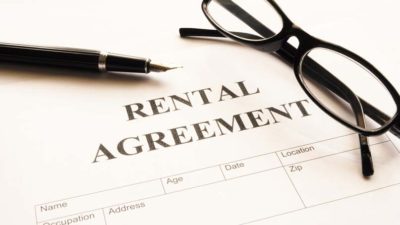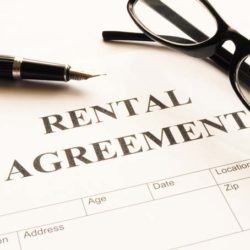How often do you adjust your investments? Periodically (annually, quarterly), one should rebalance their portfolio. If one asset class has run up in value, you might have more money invested there than you originally intended. Similarly, if an asset class has decreased in value, you might have too little exposure, if that investment still fits in with your plans. As we look at our investments, potential overexposure to Jacksonville real estate is front of mind.
I consider our investment portfolio pretty well-diversified. Our net worth is split almost evenly between real estate and traditional paper assets at 45% of our net worth each, with the remaining 10% in alternative assets (a couple of private loans and a farmland investment). Our paper assets are spread across three tactical asset allocation investment strategies, so we’re not overly concentrated in any particular asset or strategy. Our real estate is spread across four geographies with no single property accounting for more than 20% of the real estate total.
However, half of our properties are in the Jacksonville, Florida area, and that geography accounts for half of our real estate net worth. This calculation includes our Jacksonville-area primary residence, so our life and livelihood is heavily invested in Jacksonville. Are we overexposed in Florida?
We started investing in the Jacksonville area in 2013, and there has been a tremendous run-up in value over the last 10 years. Our properties have doubled, some tripled in value, except for the city studio we bought just last summer. With some savings accounts offering more than 5% APY, selling now and investing the proceeds in the bank would improve our liquidity, simplify our holdings and provide competitive cash flow. These are attractive arguments for Team Sell!
On the Team Hold side, parking our money in a savings account would mean we lose out on any future real estate appreciation. Will the future appreciation match the recent rapid rise, should we brace for a slowdown or something in-between? I see 4 reasons to rebalance our real estate portfolio and decrease exposure to Florida:
1 – Rental income may hit a ceiling

The approval ratio we use for tenants is 3:1 income: rent. This means that a potential tenant looking at a $1,000 monthly rental should make a minimum of $3,000 salary per month. A new study sponsored by business advice experts Venture Smarter (download the data in Excel here) has ranked Florida as the second worst state for graduates, largely due to its low starting salary of $37,661 per year – much lower than the national average of $42,978.
Now, we’re not only renting to recent graduates, but anecdotally among my professional connections here, salaries do seem to be lower here, especially compared to the more household names like Miami and Orlando. As landlords, we need salaries to be high for rents to be high. I don’t hear of a big transfer of high-paying jobs into the Jacksonville area, like Citadel moving to Miami. This could mean our rental income hits a ceiling sooner than later.
2 – Tourism decline takes away short-term rental option
We don’t currently have any short-term or vacation rentals in Florida. However, having that as an option gives us flexibility with real estate, which is otherwise an illiquid investment. Tourism is big in Florida, and the Jacksonville area has some big events such as the PGA tournament at Sawgrass in Ponte Vedra Beach.
Recently, there have been reports of a slowing in convention business as some organized groups boycott Florida. This doesn’t affect us immediately, but it’s something I’m keeping my eye on. Jacksonville doesn’t rely only on tourism – we have footholds in several industries, such as transportation, healthcare, sports, military. However, a slowdown in tourism could hurt the state overall, and since conventions are booked several years in advance sometimes, it’s not clear we’ve seen the full measure of whatever slowdown there might be.
3 – Exodus of families means a smaller pool of long-term tenants
Families are great tenants because they want to stay in the same school district. We recently filled a vacancy in one of our units and were thrilled to hear that it was a family with a child that has several years of elementary school yet to go. If they like the school district, chances are they’ll be multi-year tenants – no vacancy, no turnover cost!
However, just as some convention groups are exiting Florida, there are reports of families leaving Florida in response to changes in the schools and to immigration policies. It’s too early to tell what the impact will be for Florida and Jacksonville specifically, but real estate is an illiquid investment. We have to be prepared for a long lead time in selling, so if a market is going down, we need to know about it sooner than later.
4 – Climate change may make maintenance too expensive and insurance impossible

This isn’t Jacksonville or even Florida-specific. Other states are also grappling with excessive heat, hurricanes and other weather-related disasters. While misery typically loves company, it doesn’t help us when it comes to projecting out what maintenance and insurance will cost, if we can even get insurance.
We have never made a single insurance claim in Florida, and yet we have been dropped by several insurance carriers. Multiple insurance carriers are leaving Florida, so insurance will be increasingly hard to get and expensive. What insurance carriers remain seem to be getting stricter (sometimes arbitrarily so) about the level of maintenance expected, increasing those costs as well. These additional costs can’t just be passed onto tenants – especially if incomes don’t keep up (see point 1).
None of the above four reasons are running us out of Jacksonville. We love living here for so many reasons (the coastline, restaurants, the Jax Symphony to name a few of my favorites!). Our current residence is quite possibly our forever home. However, the rest of our properties are investments, and when it comes to rebalancing, we decide on logic, not emotion. We’ll keep you posted.
What investment moves are you making?


 We are Scott and Caroline, 50-somethings who spent the first 20+ years of our adult lives in New York City, working traditional careers and raising 2 kids. We left full-time work in our mid-40’s for location-independent, part-time consulting projects and real estate investing, in order to create a more flexible and travel-centric lifestyle.
We are Scott and Caroline, 50-somethings who spent the first 20+ years of our adult lives in New York City, working traditional careers and raising 2 kids. We left full-time work in our mid-40’s for location-independent, part-time consulting projects and real estate investing, in order to create a more flexible and travel-centric lifestyle.  Financial independence and early retirement is not something we originally focused on, but over time realized it was possible. Our free report,
Financial independence and early retirement is not something we originally focused on, but over time realized it was possible. Our free report, 






